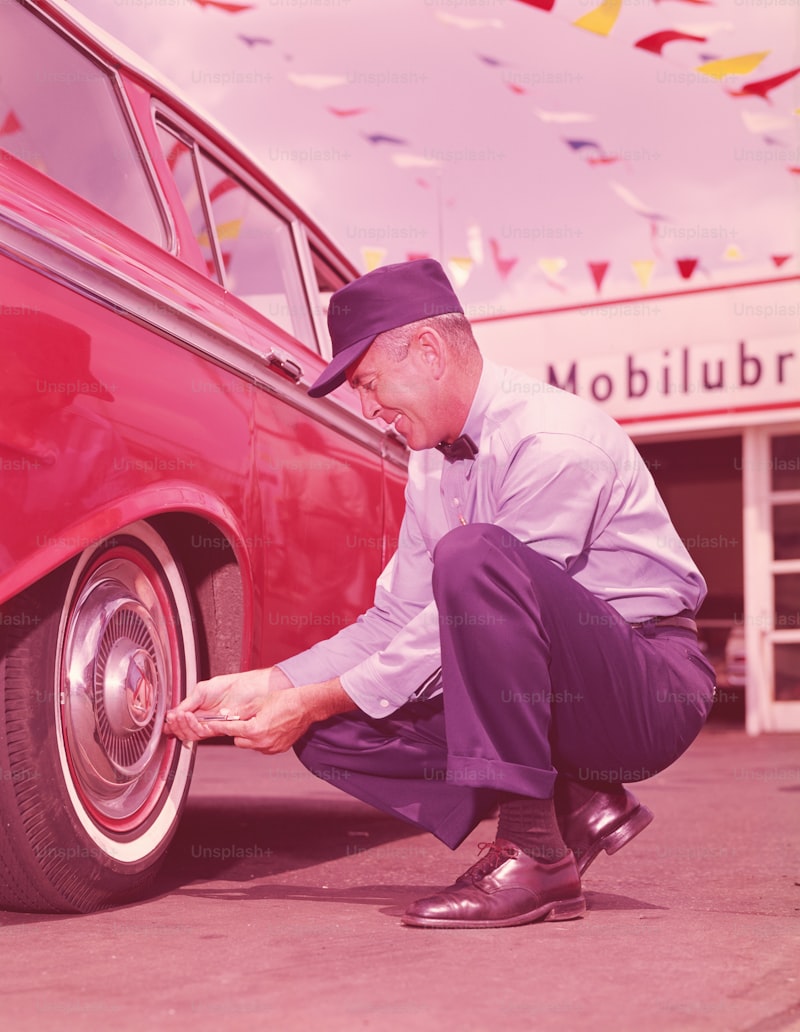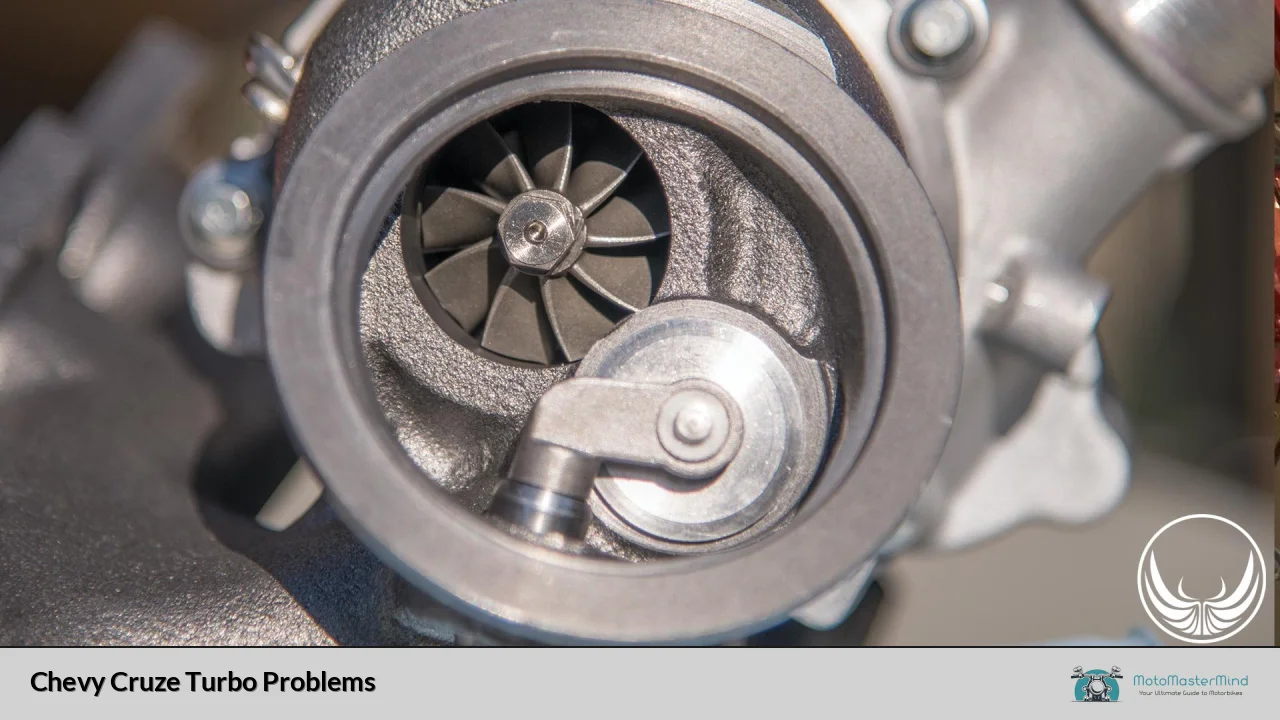Are you considering purchasing a Chevy Cruze Turbo? While this popular car has its fair share of admirers, it’s essential to be aware of potential problems that might arise. In this article, we’ll dive into some common issues reported by Chevy Cruze Turbo owners, helping you make an informed decision.
One problem that has been frequently mentioned is the engine overheating. Some drivers have experienced their engines reaching high temperatures, leading to potential damage if not addressed promptly. This issue could be caused by a malfunctioning thermostat, a faulty cooling fan, or a leak in the cooling system. If you notice your temperature gauge rising unexpectedly, it’s crucial to have it checked by a qualified mechanic.

Another concern highlighted by owners is turbocharger failure. The turbocharger plays a significant role in enhancing the performance of the Chevy Cruze Turbo. However, some drivers have reported issues such as oil leaks, excessive noise, and reduced power output from the turbocharger. Regular maintenance and using high-quality oil can help prevent these problems, but it’s still important to keep an eye out for any signs of turbocharger trouble.
Furthermore, some Chevy Cruze Turbo owners have experienced transmission issues. These may manifest as rough shifting, hesitation, or even complete transmission failure. It’s advisable to have your transmission fluid checked regularly and adhere to the recommended maintenance schedule to minimize the risk of encountering these problems.
Lastly, electrical gremlins have been reported by a number of Chevy Cruze Turbo drivers. These can manifest as intermittent issues with the power windows, door locks, or infotainment system. While these problems might not affect the overall drivability of the car, they can be frustrating to deal with on a daily basis.
While the Chevy Cruze Turbo offers many desirable features and performance capabilities, it’s essential to be aware of potential problems. Issues such as engine overheating, turbocharger failure, transmission troubles, and electrical gremlins have been reported by some owners. By staying informed and conducting thorough inspections before purchasing, you can mitigate the risk of encountering these problems and enjoy the benefits that the Chevy Cruze Turbo has to offer.
Unveiling the Underlying Issues: Exploring the Chevy Cruze Turbo Problems
Are you a proud owner of a Chevy Cruze Turbo? This compact car has garnered quite a following with its sleek design and impressive performance. However, like any other vehicle, it’s not without its fair share of issues. In this article, we delve into the underlying problems that some Chevy Cruze Turbo owners have faced, shedding light on these concerns.
One of the most common problems reported by Chevy Cruze Turbo owners is related to the turbocharger itself. The turbocharger plays a crucial role in enhancing the car’s power and efficiency. However, some drivers have experienced issues with the turbocharger failing prematurely or producing an annoying whistling noise during operation. These problems can lead to decreased engine performance and potential costly repairs.
Another issue that has surfaced with the Chevy Cruze Turbo is the coolant leak. Some owners have noticed coolant leaking from the water pump, which can result in overheating and engine damage if not addressed promptly. This problem is especially concerning as it can leave drivers stranded on the side of the road, awaiting assistance.
Furthermore, several owners have expressed concerns about the transmission system in the Chevy Cruze Turbo. Reports of rough shifting, hesitation, and even complete transmission failure have been documented. Such malfunctions can be frustrating and may require extensive repairs, causing inconvenience and financial strain for the car owners.
To compound matters, certain models of the Chevy Cruze Turbo have encountered electrical issues. From faulty wiring leading to malfunctioning lights and indicators to problems with the infotainment system, these electrical glitches can certainly mar the driving experience and compromise safety.
While the Chevy Cruze Turbo offers an appealing package of style and performance, it is not immune to issues that have affected some of its owners. Problems with the turbocharger, coolant leaks, transmission malfunctions, and electrical glitches have been reported, raising concerns among the Chevy Cruze Turbo community. If you are a current or prospective owner, it is essential to be aware of these potential issues and take necessary precautions to mitigate them.
Turbo Troubles: Are Chevy Cruze Owners Being Left in the Dust?

Intro:
Are you a proud owner of a Chevy Cruze? If so, you might be facing some turbo troubles that are leaving you in the dust. In this article, we’ll dive into the concerns surrounding Chevy Cruze turbos and explore what owners can do to address these issues. Let’s get started!

The Turbocharger Conundrum:
One of the standout features of the Chevy Cruze is its turbocharged engine, which offers a powerful and fuel-efficient driving experience. However, some Chevy Cruze owners have reported problems with their turbos, raising concerns about the reliability and performance of these vehicles.
Common Issues:
Among the most frequently reported turbo-related problems are oil leaks, loss of power, and excessive noise. These issues can be frustrating for Chevy Cruze owners, as they affect both the performance and overall driving experience. No one wants to be left in the dust when it comes to their vehicle’s reliability.
Possible Causes:
Several factors contribute to these turbo troubles. One potential cause is inadequate lubrication, leading to oil leaks and subsequent damage to the turbocharger system. Another factor could be excessive heat buildup, which puts additional strain on the turbo and can result in reduced power output. Additionally, poor maintenance practices or using low-quality oil and filters can exacerbate these problems.
Solutions and Maintenance Tips:
If you’re experiencing turbo troubles with your Chevy Cruze, don’t despair. There are steps you can take to mitigate these issues. Regular maintenance, including timely oil changes and using high-quality synthetic oils, can help prolong the life of your turbocharger. It’s also crucial to address any oil leaks promptly to prevent further damage.
Moreover, seeking professional assistance from certified mechanics who specialize in turbo systems is highly recommended. They can diagnose the problem accurately and provide the necessary repairs or replacements.
In Conclusion:
While some Chevy Cruze owners have encountered turbo troubles, it’s important to remember that not all vehicles will experience these issues. By staying proactive with maintenance and addressing any problems promptly, you can ensure your Chevy Cruze remains a reliable and enjoyable ride for years to come.
Cruze Control Concerns: Investigating the Rising Reports of Chevy Cruze Turbo Problems
Are you a Chevy Cruze owner who’s been experiencing some issues with your turbo? You’re not alone. In recent times, there has been a significant increase in reports regarding Chevy Cruze Turbo problems. This article will delve into the concerns surrounding Cruze control and investigate what might be causing these issues.
One of the primary concerns reported by Chevy Cruze owners is related to the turbocharger. The turbocharger plays a crucial role in enhancing the engine’s power output by compressing the incoming air. However, some drivers have noticed a decrease in performance or even complete failure of the turbocharger. This can lead to reduced power, decreased fuel efficiency, and an overall unsatisfying driving experience.
Several factors could contribute to these turbo problems. One possibility is the buildup of carbon deposits within the turbocharger, which can restrict airflow and cause inefficiencies. Another potential culprit could be oil supply issues, such as clogged oil lines or inadequate lubrication, leading to premature wear and tear on the turbo components.
To address these concerns, it’s essential for Chevy Cruze owners to prioritize regular maintenance and servicing. Regularly changing the oil and using high-quality oils specifically recommended for turbocharged engines can help prevent oil-related issues. Additionally, following proper warm-up and cool-down procedures can minimize the likelihood of carbon deposit buildup.
If you’re experiencing turbo-related problems, it’s advisable to visit an authorized Chevrolet service center. Trained technicians can diagnose the issue accurately and provide the necessary repairs or replacements. It’s crucial not to neglect these problems as they may worsen over time and result in more extensive damage, leading to costly repairs.
The rising reports of Chevy Cruze Turbo problems are a cause for concern among owners. Issues with the turbocharger can significantly impact the vehicle’s performance and overall driving experience. By ensuring regular maintenance, following proper operating procedures, and seeking professional assistance when needed, Chevy Cruze owners can address these concerns and enjoy a smoother, trouble-free ride.
Revving Up Concerns: What’s Behind the Growing Complaints About Chevy Cruze Turbo Performance?
Are you a proud owner of a Chevy Cruze Turbo, or perhaps considering purchasing one? Then, you might have come across the growing buzz surrounding complaints about the vehicle’s performance. It’s crucial to understand the factors contributing to these concerns before making any decisions. Let’s dive deeper into what’s behind these issues and explore the reasons why some drivers are experiencing dissatisfaction.
One major point causing frustration among Chevy Cruze Turbo owners is the turbo lag. This term refers to the delay in power delivery when stepping on the accelerator. Picture this: you’re merging onto a highway, eager to accelerate swiftly, but instead, there’s a momentary hesitation before the engine kicks into action. This lag can be disconcerting and impact the overall driving experience. However, it’s important to note that not all drivers encounter this issue, and it may vary depending on individual driving habits and road conditions.
Furthermore, another concern revolves around the transmission. Some owners report a jerky shifting sensation during gear changes, particularly at lower speeds. This abruptness can disrupt the smoothness of the ride and lead to driver discomfort. It’s worth mentioning that Chevy has made efforts to address this matter in newer models, implementing software updates and refining the transmission system for improved performance.
Additionally, certain drivers have expressed disappointment with the fuel efficiency of the Chevy Cruze Turbo. While the vehicle is marketed as being fuel-efficient, some owners find that it falls short of their expectations. The actual mileage achieved may differ from the advertised figures due to various factors such as driving style, traffic conditions, and maintenance practices. Nonetheless, it’s essential to consider your own driving needs and habits when assessing whether the Chevy Cruze Turbo meets your requirements in terms of fuel efficiency.

